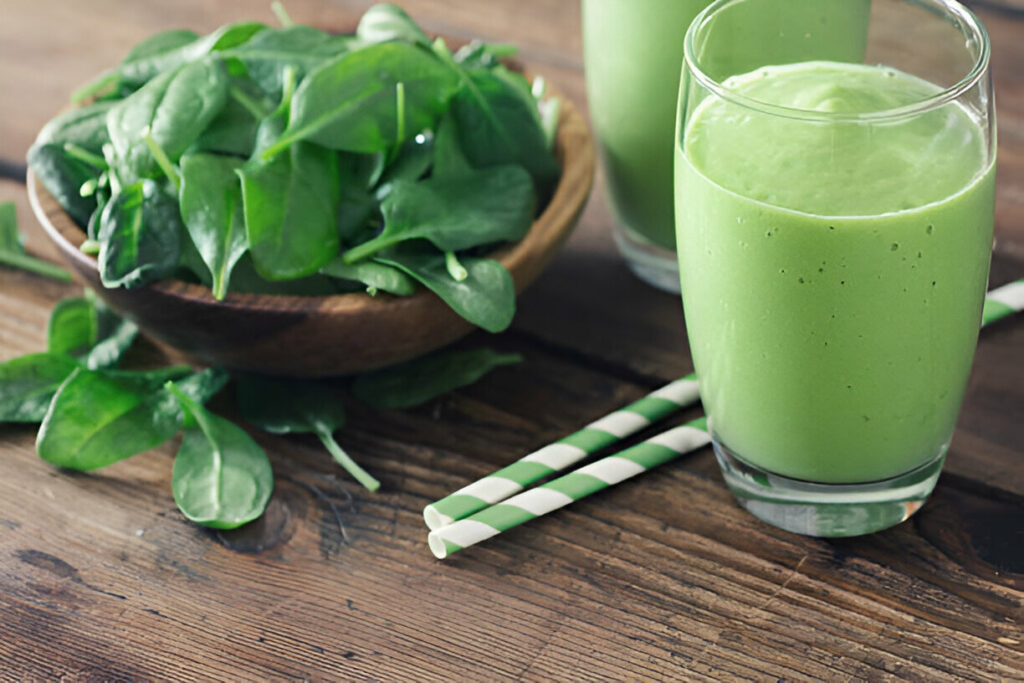Spinach, that leafy green powerhouse, has long been a staple in healthy diets. From Popeye’s bulging biceps to modern-day smoothie bowls, this versatile vegetable packs a punch of nutrients. But beyond its familiar place on our plates, spinach is also pushing the boundaries of scientific research, even reaching for the stars. Let’s delve into the multifaceted world of spinach, exploring its health benefits, culinary versatility, safety considerations, and its surprising journey into space.
A Nutritional Powerhouse
Spinach is a treasure trove of vitamins and minerals. “Spinach is a fantastic source of vitamins A, C, and K, as well as folate, iron, and magnesium,” explains registered dietitian, Dr. Anya Sharma. “These nutrients play crucial roles in maintaining overall health.”
- Heart Health: The potassium in spinach helps regulate blood pressure, while its fiber content contributes to lower cholesterol levels.
- Eye Health: Rich in lutein and zeaxanthin, spinach protects against age-related macular degeneration and cataracts.
- Cancer Prevention: Spinach contains antioxidants like flavonoids, which fight free radicals and may reduce the risk of certain cancers.
- Bone Health: Vitamin K and calcium support strong bones, preventing osteoporosis.
From Salad Bowls to Space Gardens – Culinary Versatility

Incorporating spinach into your diet is easier than you might think. Whether fresh or cooked, it adds a nutritional boost to any meal.
- Smoothies: Blend spinach with fruits like bananas, berries, and mango for a nutrient-rich smoothie.
- Salads: Toss fresh spinach with your favorite vegetables, nuts, and a light vinaigrette for a refreshing salad.
- Side Dishes: Sauté spinach with garlic and olive oil, or add it to stir-fries and pasta dishes.
- Main Courses: Incorporate spinach into quiches, lasagna, or lentil soups for a hearty meal.
- Spinach and Feta Pie: A classic Mediterranean dish, combining spinach, feta cheese, and flaky pastry.
“Don’t be afraid to experiment,” encourages culinary nutritionist, Chef Ben Carter. “Spinach can be seamlessly integrated into almost any recipe, adding both flavor and nutrition.”
Food Safety – Handling with Care
While spinach is undeniably healthy, proper handling is crucial to avoid foodborne illnesses.
- Washing: Thoroughly wash spinach under running water to remove dirt and bacteria.
- Storage: Store spinach in the refrigerator in a plastic bag or container to maintain freshness.
- Pesticide Residues: Opt for organic spinach whenever possible to minimize exposure to pesticides.
- Oxalate Content: Spinach contains oxalates, which can contribute to kidney stones in susceptible individuals. Cooking spinach reduces oxalate content. “Individuals with a history of kidney stones should consume spinach in moderation and consult with their physician,” advises Dr. Sharma.
Spinach in Space – A Giant Leap for Food Production
Beyond Earth, spinach is making waves in space research. Scientists are exploring the possibility of growing spinach in microgravity environments, a crucial step toward long-duration space missions.
- Microgravity Cultivation: Researchers at NASA and other space agencies are conducting experiments to understand how spinach grows in space. These experiments often use hydroponic or aeroponic systems.
- Sustainable Food Production: Growing spinach in space could provide astronauts with fresh, nutritious food, reducing reliance on pre-packaged meals.
- Earth Applications: Research into space agriculture can also benefit sustainable food production on Earth, particularly in resource-limited environments.
- Recent Research: Recent studies have focused on optimizing light, nutrient, and water delivery for spinach growth in microgravity. These studies also explore the genetic adaptations of spinach to space environments. For example, research published in the “Frontiers in Plant Science” journal explores the transcriptomic changes in spinach leaves when grown under simulated microgravity.
- “Understanding how plants adapt to space environments is crucial for future space exploration,” says Dr. Emily Chen, a plant biologist specializing in space agriculture. “Spinach is a valuable model organism for these studies.”
Spinach from a simple vegetable to a subject of cutting-edge space research, underscores its remarkable versatility and nutritional value. By understanding its health benefits, embracing its culinary potential, and practicing safe handling, we can all reap the rewards of this extraordinary superfood.
